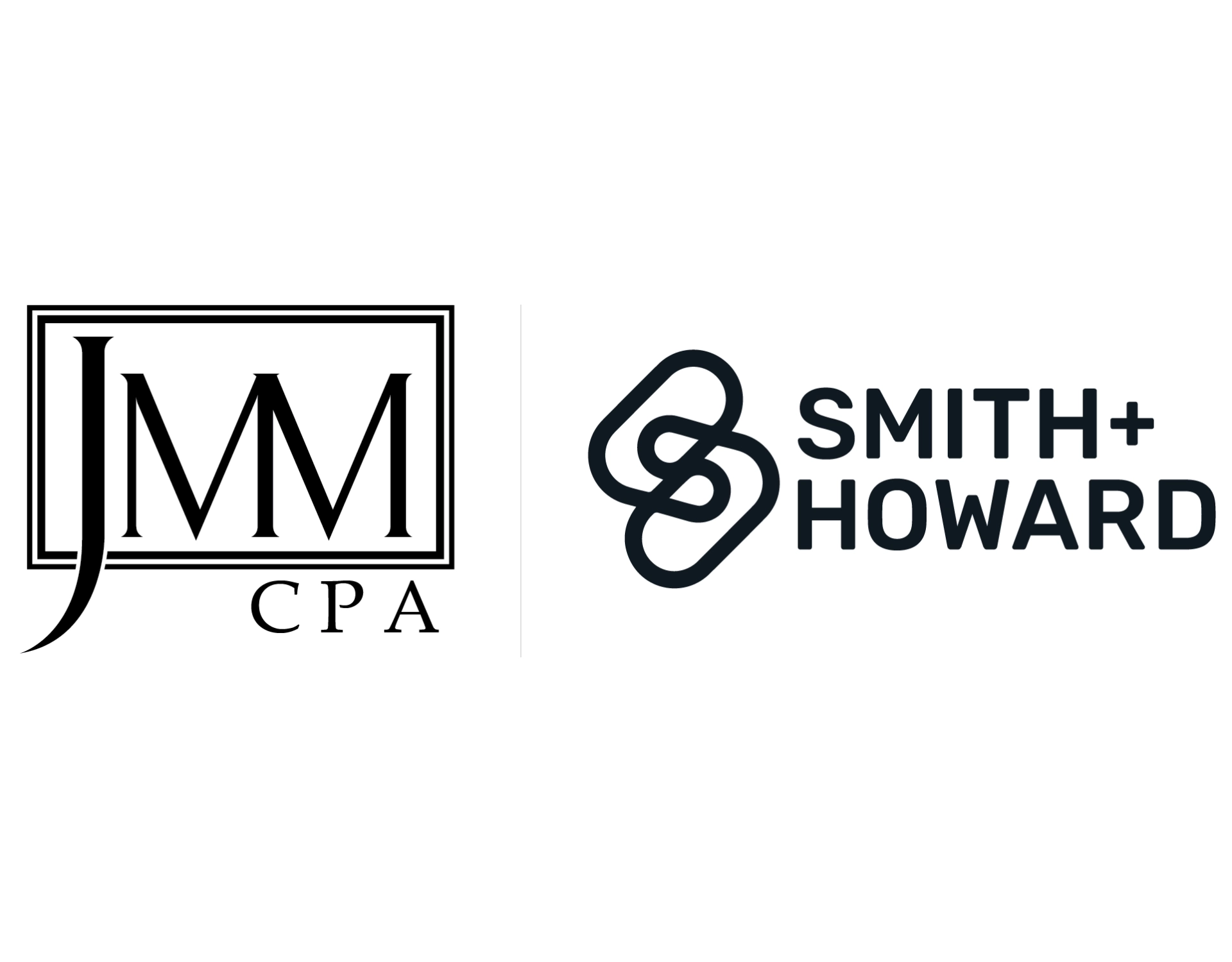JMM CPAs is now
Smith + Howard
The integration of JMM CPAs into the Smith + Howard family ensures that plan sponsors and advisors will continue to be served by experts in EBP audits who are solely dedicated to benefit plan audits.
Current clients: Click here to log into JMM’s CaseWare Cloud.
Contact us for a Quote






